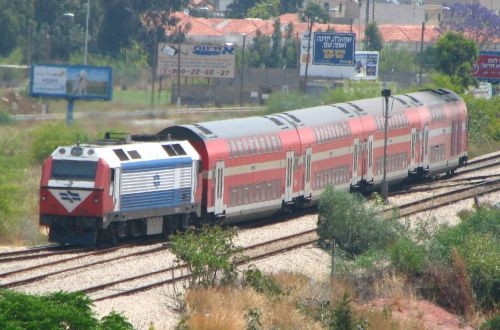The budget includes Shekels 12bn for electrification, Shekels 3.4bn for new electric-train depots and converting existing depots for electric traction, and Shekels 3.7bn for new signalling including the introduction of ETCS Level 2, for which tendering has just started.
There is also funding for building the long-awaited Modi'in Outskirts - Rishon Le-Zion Rishonim line, which will run in the median strip of a highway. The new line will connect Modi'in Outskirts with the A1 fast link to Jerusalem and will entail modifications to Modi'in Outskirts station, and adding new freight sidings and terminals.
Shekels 700m is allocated for designing future infrastructure projects such as quadrupling the Tel-Aviv - Haifa mainline, linking Rishon Le-Zion Rishonim and Rishon Le-Zion West (Moshe Dayan) stations, enlarging Ben-Gurion Airport station, and building a Lod bypass to reduce the number of trains passing through the city.
A further Shekels 153m will be spent on two new passenger stations on the Ramla - Beer-Sheva line at Kfar-Menakhem (due to open in 2017) and Mazkeret Batya, as well as at Netanya Sapir. Shekels 245m will be spent on park-and-ride facilities and improvements to passenger services. Finally, Shekels 335m will be spent on grade separations.
Electrification and new signalling and control systems will enable Israel Railways to increase the number of daily passenger trains from 450 to 860 and achieve the goal of carrying at least 70 million passengers a year.

